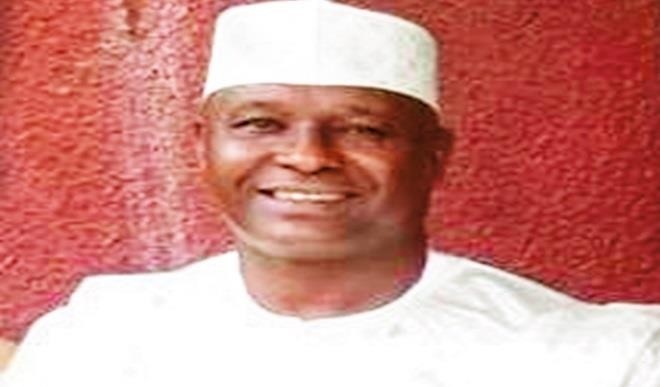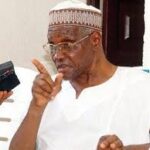
Daily Trust: What is your view of Tanzania as the ambassador from Nigeria?
Ambassador Salisu Umar: I have been here for about seven months. Tanzanians are very friendly and industrious. Tanzania is the gateway to the East African sub-region and they have a common market. And I am calling on Nigerians who travel to always have all their documents intact and not to assume that this is an ECOWAS sub-region where they can travel without documents. They must have their valid passports and visas as we had cases where people come without proper documents and the High Commission had to intervene after they had been arrested for some time. The best thing is before you travel out of Nigeria; with technology now you can browse to know the people and their regulations and try to accept the basic international standards for travelling worldwide.
DT: Are you a career diplomat or a politician who gate-crashed into the system?
Umar: I have been a career diplomat for 31 years. By November 30, I will be 32 years in the service.
DT: How did you start the diplomatic service?
Umar: I started as a graduate officer on grade level 8 in the Foreign Service. I am now on a special grade, which is level 17.
DT: Which countries have you served in?
Umar: I served in Austria as my first posting and then my second posting was in England and then the third was Cameroon and then Saudi Arabia and then Cameroon again and later Niger Republic and now Tanzania.
DT: How do you feel when you go to a region where the weather is cold, like in Austria?
Umar: I was much younger then and I realised for the first time that the few European ladies who undress in the beach were not doing it for fun. The weather during winter was very harsh, like in the year 1986. I then realised that it was not just about nudity but because they needed sunlight.
DT: What about learning the language of the countries that do not speak English?
Umar: We have officers who have been trained in languages and most Foreign Service officers have second a language, as I can now speak French, Arabic and English.
DT: How long did you stay in Austria and other missions?
Umar: I served for three years in Austria and four years in London.
DT: What about your family?
Umar: I go with my wife and she speaks English, French, Arabic as well as our language Fulani and Hausa. And my children speak these languages better than me.
DT: Would you like your children to be diplomats?
Umar: It depends on their choice and if they want to be diplomats, it is good for them. Mind you, diplomats are comfortable but not rich but he becomes versatile with worldwide experience and you make a lot of friends and contacts.
DT: Are wives of diplomats allowed to work in the high commissions or embassies or the countries of posting?
Umar: They are not allowed to work, but one wife and four children are on allowances and that is enough for them while you are the only one working. But with the current dispensation, wives of diplomats can seek for and work in various countries of accreditation, even in high commissions and embassies.
DT: What is your view as a diplomat relating with some Nigerians that may be notorious for impatience and acts of indiscipline?
Umar: Honestly, from my experience as a diplomat when Nigerians leave the shores of Nigeria they become very disciplined and organised. I think it is just the attitude and with the current president we have seen within six months the level of improvement on the image of Nigeria because people are now aware of the capacity of leadership to use its good offices to deal decisively with people that err and with that people are already falling in line with accepted norms and values.
DT: If a diplomat is going on assignment or transfer from one country to the other, how many months’ grace is he given?
Umar: There are some basic things such as a refresher course and some basic training for two to three weeks. Thereafter you prepare and within two months you should be ready to move to your next post. And normally postings are between three to four years and you go with your family.
DT: What is the provision where one has more than one wife?
Umar: We have officers who have three wives and they manage. The government takes care of one wife and maximum of four children but the constitution of Nigeria guarantees freedom of marriage, so a diplomat is free to marry many wives and have many children.
DT: You left Nigeria where the cars are on left-hand drive and you are now in Tanzania where they maintain right-hand drive, how are you coping?
Umar: We learn to change. We get by within a period of two to three weeks.
DT: What memorable thing ever happened to you as a diplomat?
Umar: Most countries are interesting and every country has its own peculiarities. But one of the most important things is how some people will underestimate the capacity of some people because of their background and so on. They only get to know the reality after close interaction.
DT: What is your most significant achievement as a diplomat and Nigeria’s image maker?
Umar: When I came to Tanzania, I realised that the High Commissioner’s residence was bought in the early 1960s and they have not renovated it since. And the house was in a diplomat community area out of town with big houses that are not well kept. I took charge and brought it to standard and in the process my German neighbour asked whether Nigeria has sold the house and he learnt that it was a new officer and he insisted he must see the officer to enquire why the house was renovated. Later the Tanzanian national media took time to do a report and published it. That prompted the government to order other house occupants to upgrade their houses. This made them to realise that Nigerians have taste and they can do good things.
DT: Any regrets?
Umar: The only regret is that you are always far away from your immediate and extended family and you are home sick and things like that. You want to share your experience with your loved ones but you are far away. And you realise that there are colleagues that you can do better than but because of this dislocation from one place to another when you come back you start afresh. For example, in Abuja we have very good houses and when we left there was privatisation and the houses were sold to our colleagues that were on ground as they bought them at government-rate and when we came back we were not given those opportunities. We were on national assignment and that should not be the case as that was the price we paid for doing service abroad.
DT: What is your call based on your experience on how to develop Nigeria?
Umar: Young and upcoming Nigerians should look forward to this leadership which is leading by example. And elders should also queue up and ensure and insist on not only doing what is right but to support the system to assist the leadership to get the maximum impact.
DT: What is your background and educational profile?
Umar: I come from Yola in Adamawa State and I have my first degree from Bayero University Kano. I went to Lagos for my master’s degree in International Law and Diplomacy and I have five other post-graduate qualifications and many certificates from China on Chinese foreign policy and another on development in China.
DT: How are you planning for retirement?
Umar: After retirement, I want to write some books and to go into farming and things like that.

 Join Daily Trust WhatsApp Community For Quick Access To News and Happenings Around You.
Join Daily Trust WhatsApp Community For Quick Access To News and Happenings Around You.


